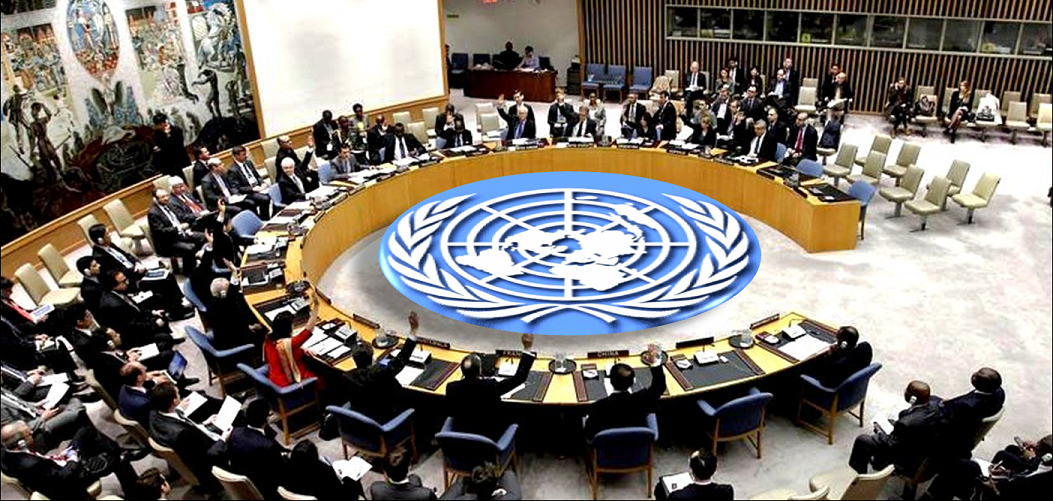
On November 15, the United Nations Security Council adopted a resolution drafted by the United Kingdom subjecting Somalia to a draconian sanctions regime for another year. The resolution is roughly similar to the previous one as it re-imposes the same limitations and prohibitions on the struggling nation while Somalia’s concerns about violations by foreign troops remain unaddressed.
UK detrimental role
The United Kingdom, which acts as a penholder for Somalia-related issues, circulated a version of the draft resolution during the week of November 2 and also held two rounds of negotiations during that week. The UK, supported by the US, called for the renewal of sanctions, determining that “the situation in Somalia continues to constitute a threat to international peace and security in the region”.
The penholder system acknowledged over the past decade is another instrument of world domination established by the UK, US and France, in addition to their permanent UNSC membership and veto power. They take on all the world affairs and initiate draft resolutions to interfere and dominate the discourse. Due to their colonial and hegemonic past, their interests are scattered across the planet.
China and Russia are usually consulted after a resolution is drafted and their input is sought, especially if their interests are potentially concerned, before it is shared with the 10 elected members of the Council (E10) just before the vote. Last March, the African countries present at the Council protested that they had not been consulted in the resolution drafted by the United Kingdom on the extension of AMISOM, while the mission falls under the African Union.
China and Russia’s timid resistance
A number of concerns and objections were raised by China and Russia, the only non-Western veto holders in the Council. China has stressed that the sanctions cannot last forever and that the Somali government’s requests for the relaxation of sanctions must be given due consideration. Both China and Russia also said that relevant parts of the sanctions regime should be updated to meet Somalia’s need to strengthen its security institutions.
Council members disagreed on many parts of the resolution that don’t directly impact the implementation of the arms embargo or other aspects of the sanctions regime. Russia and China also objected to the human rights references in the draft resolution. Also, another concerning issue was references to the ongoing dispute between Djibouti and Eritrea. China and Russia believe that this is a bilateral issue which no longer deserves to be mentioned in this Council resolution.
China suggested that the draft resolution include achievable benchmarks that would ultimately lead to an end to sanctions. Benchmarks similar to those imposed by the IMF and the World Bank on Somalia to reach the “decision point” that has normalized Somalia’s relations with the world after 30 years outside the international financial system. Such criteria could meet Somalia’s repeated wishes to see the arms embargo lifted in order to provide its security forces with essential equipment to face the security challenges in the country.
Sanctions remains largely unchanged
As no compromise could be reached before the vote, the resolution 2551 was adopted without responding to China and Russia objections and recommendations. Both countries abstained while the 13 other council members voted in favour.
The sanctions regime remained largely unchanged as some Council members believe the security situation in Somalia has not improved enough to ease the crippling sanctions. Somali security forces will continue to be subjected to stringent arms embargo and intrusive oversight. The resolution authorizes the security forces to receive arms, training and technical advices but must report to AMISOM and the Panel of Experts on Somalia whose mandate has also been extended until December 15, 2021.
Additionally, the resolution renews the partial lifting of the arms embargo imposed on the Somali security forces, the authorization of maritime bans to enforce the embargo on illegal imports of arms and exports of charcoal. It recommends the Federal Government of Somalia (FGS) to identify, monitor and report on money laundering to mitigate Al-Shabaab’s ability to raise funds and upholds the ongoing implementation of the ban on components for improvised explosive devices (IEDs).
One important change is that exemptions from the arms embargo, such as the delivery of arms, training and technical advice, among others, to Somali national security forces, are no longer subject to annual renewal. With this piecemeal approach, the UK seems willing to keep Somalia under this drastic regime for years to come.
Finding a way out of the unfair sanctions
Although the Council is apparently concerned a range of societal ills prevalent in sub-Saharan Africa, human rights and Eritrea-Djibouti bilateral issues unrelated to the peace and security in the region, it has not addressed risks posed by foreign presence mandated by the UN resolution.
In fact, Somalia has raised the issue of human rights violations committed by AMISOM officials, like in the case of Simon Mulongo, African troops’ involvement in extra-judicial killings, rape and other abuses, and Kenya’s documented involvement in the illegal charcoal trade.
With AMISOM troops lack of appetite to fight Al-Shabab and Somali National Army (SNA) limited in its effort by the arms embargo, the FGS should find a different approach to regain its sovereignty and control the security of the country, as there is no foreseeable end to the UK’s efforts to keep Somalia under a trusteeship system which goes beyond the simple fight against Al-Shabab.
